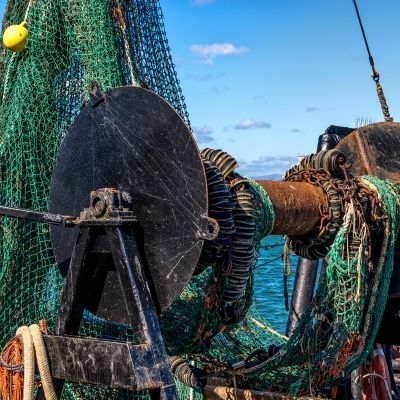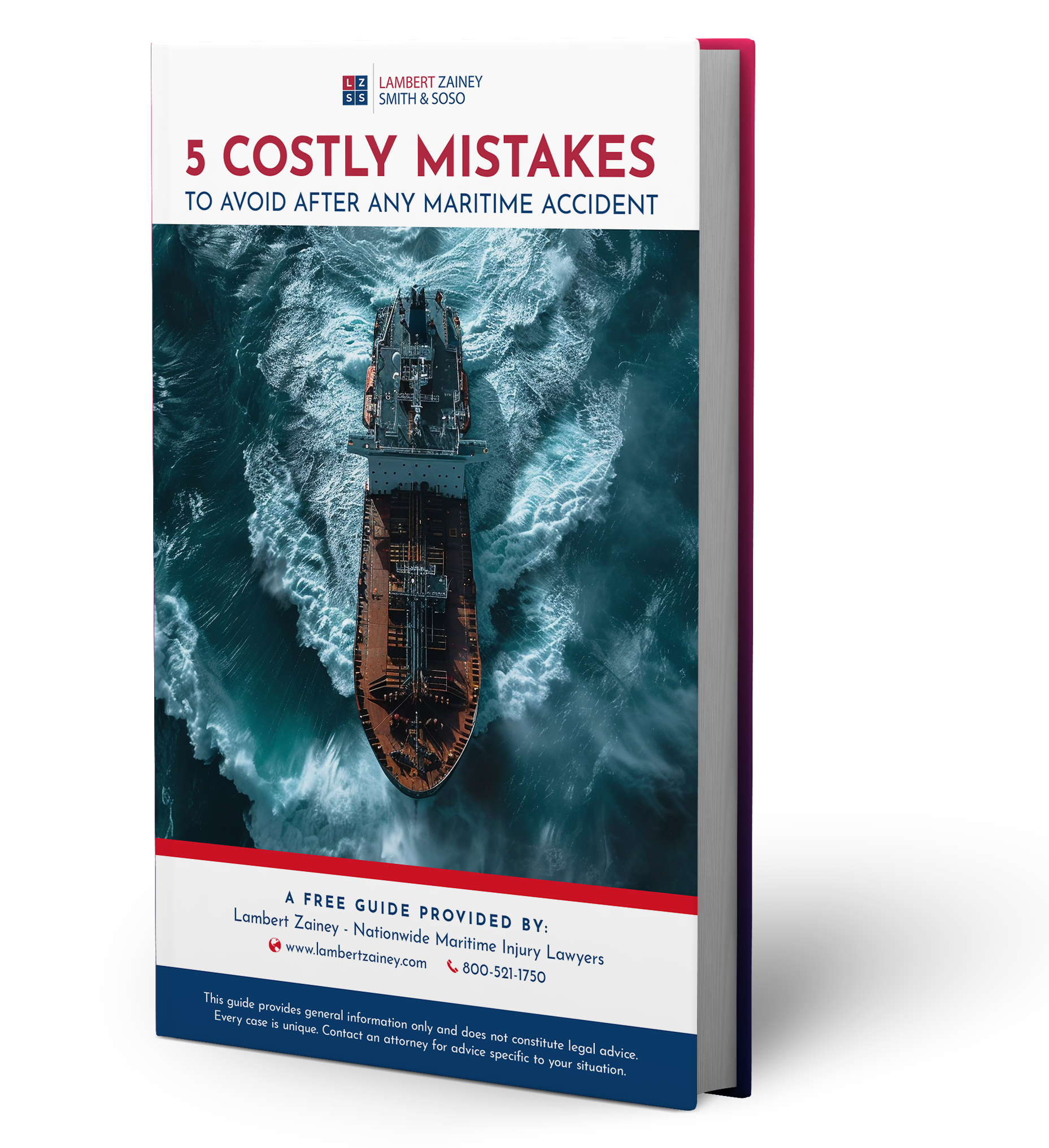Deck winches are a vital piece of equipment on today’s commercial fishing vessels; winches are used to let out, adjust, and reel in the nets and lines used to gather the vessel’s catch.

Unfortunately, trawl winches and other deck winches are among the most dangerous pieces of equipment aboard a fishing vessel. Accidents involving winches and other deck machinery are responsible for a majority of serious on-the-job injuries and deaths among commercial fishermen. According to a study conducted by the Center for Disease Control (CDC), workers in the commercial fishing industry have the highest occupational fatality rate in the United States. The study noted that from 2000–2011, eight fatal, and 27 work-related injuries involving deck winches occurred on the vessels of the Southern shrimp fleet, which operates in the Gulf of Mexico and off the Atlantic coast from Florida to North Carolina.
How Deck Winch Accidents Happen
Winch accidents can happen due to a variety of reasons, including defective parts, poorly maintained parts, operator error or inexperience, and improper use of the winch. One of the most common types of deck winch accidents occurs when a fisherman becomes entangled in the winch line.
A fisherman can become entangled when a piece of loose or baggy clothing becomes caught in the revolving drum of the winch, or when they accidentally fall or back into a winch. Entanglement can result in serious, and even fatal injuries, including the traumatic amputation of fingers, hands, legs, and feet, bone fractures, and crush injuries.
Preventing Deck Winch Injuries
Sadly, many of these tragic deck winch accidents could have been avoided. Some of the ways fishing boat owners and crew can help reduce the risk of deck winch injuries include:
Get Our FREE Guide to Protect Your Claim
What you do after an accident is critical. Insurance companies will try to get you to make mistakes that can hurt your claim. Our free guide can help you avoid these traps.
Download our complimentary guide: “5 Costly Mistakes to Avoid After Any Maritime Accident” to arm yourself with the knowledge you need to protect your rights.
Commercial Fishermen Have a Right to Seek Compensation for Work Injuries
If you are a commercial fisherman who was injured in a winch accident, the Jones Act and other maritime laws give you the right to seek compensation for the damages and losses resulting from your accident.
Lambert Zainey is a Louisiana based maritime accident law firm that is dedicated to protecting the rights of injured seamen and other maritime workers who have been injured in on-the-job accidents that shouldn’t have happened. We’ve successfully represented commercial fisherman injured in winch accidents while working aboard charter boats, trawlers, seiners, trollers, jiggers, dredges, and other fishing vessels.
Contact the Lambert Firm to schedule a free, initial consultation to speak with one of our experienced winch accident lawyers. We’ll review the details of your case, answer any legal questions you may have, and provide honest, professional advice on the best way to proceed with your claim.
Deck winches are a vital piece of equipment on today’s commercial fishing vessels; winches are used to let out, adjust, and reel in the nets and lines used to gather the vessel’s catch.

Unfortunately, trawl winches and other deck winches are among the most dangerous pieces of equipment aboard a fishing vessel. Accidents involving winches and other deck machinery are responsible for a majority of serious on-the-job injuries and deaths among commercial fishermen. According to a study conducted by the Center for Disease Control (CDC), workers in the commercial fishing industry have the highest occupational fatality rate in the United States. The study noted that from 2000–2011, eight fatal, and 27 work-related injuries involving deck winches occurred on the vessels of the Southern shrimp fleet, which operates in the Gulf of Mexico and off the Atlantic coast from Florida to North Carolina.
How Deck Winch Accidents Happen
Winch accidents can happen due to a variety of reasons, including defective parts, poorly maintained parts, operator error or inexperience, and improper use of the winch. One of the most common types of deck winch accidents occurs when a fisherman becomes entangled in the winch line.
A fisherman can become entangled when a piece of loose or baggy clothing becomes caught in the revolving drum of the winch, or when they accidentally fall or back into a winch. Entanglement can result in serious, and even fatal injuries, including the traumatic amputation of fingers, hands, legs, and feet, bone fractures, and crush injuries.
Preventing Deck Winch Injuries
Sadly, many of these tragic deck winch accidents could have been avoided. Some of the ways fishing boat owners and crew can help reduce the risk of deck winch injuries include:
Get Our FREE Guide to Protect Your Claim
What you do after an accident is critical. Insurance companies will try to get you to make mistakes that can hurt your claim. Our free guide can help you avoid these traps.
Download our complimentary guide: “5 Costly Mistakes to Avoid After Any Maritime Accident” to arm yourself with the knowledge you need to protect your rights.
Commercial Fishermen Have a Right to Seek Compensation for Work Injuries
If you are a commercial fisherman who was injured in a winch accident, the Jones Act and other maritime laws give you the right to seek compensation for the damages and losses resulting from your accident.
Lambert Zainey is a Louisiana based maritime accident law firm that is dedicated to protecting the rights of injured seamen and other maritime workers who have been injured in on-the-job accidents that shouldn’t have happened. We’ve successfully represented commercial fisherman injured in winch accidents while working aboard charter boats, trawlers, seiners, trollers, jiggers, dredges, and other fishing vessels.
Contact the Lambert Firm to schedule a free, initial consultation to speak with one of our experienced winch accident lawyers. We’ll review the details of your case, answer any legal questions you may have, and provide honest, professional advice on the best way to proceed with your claim.









